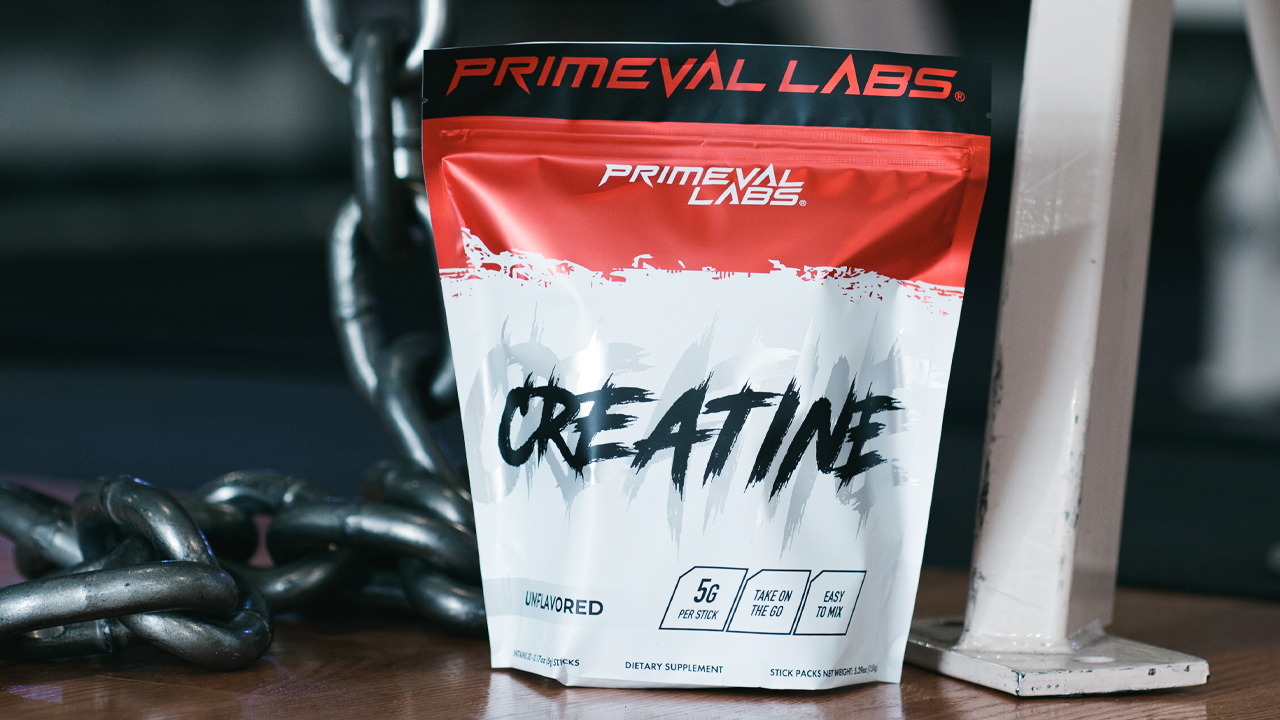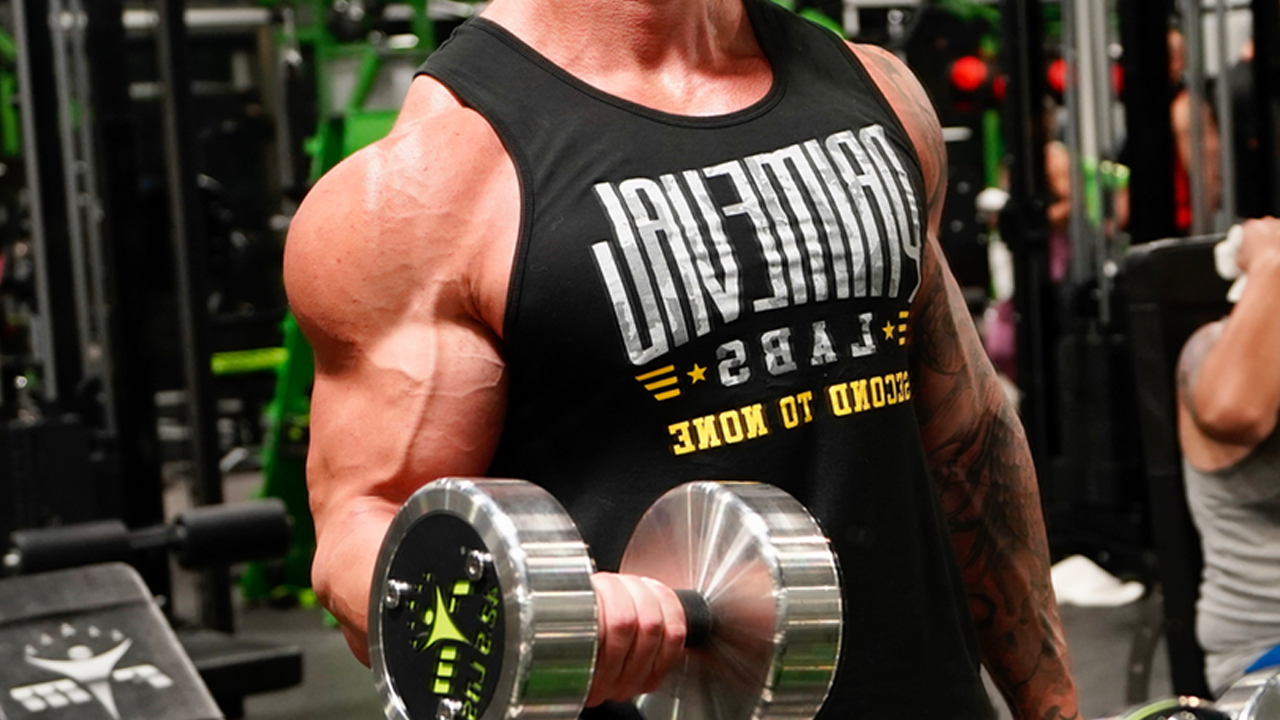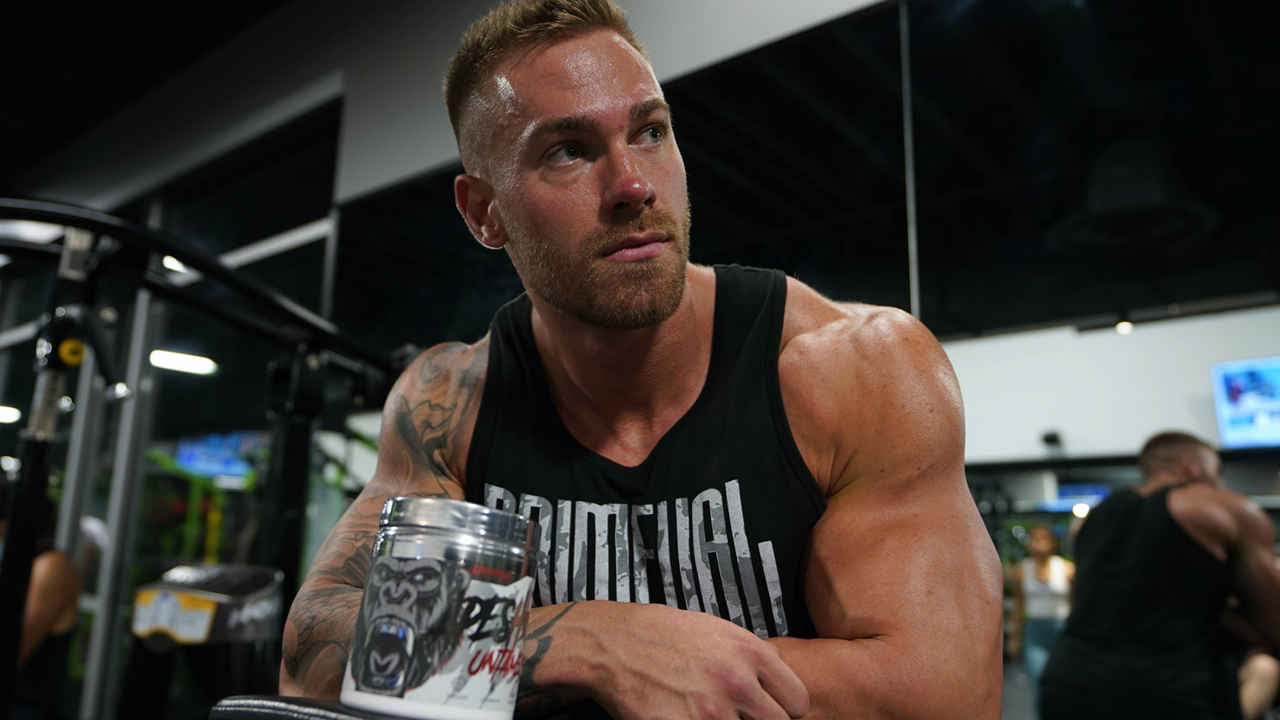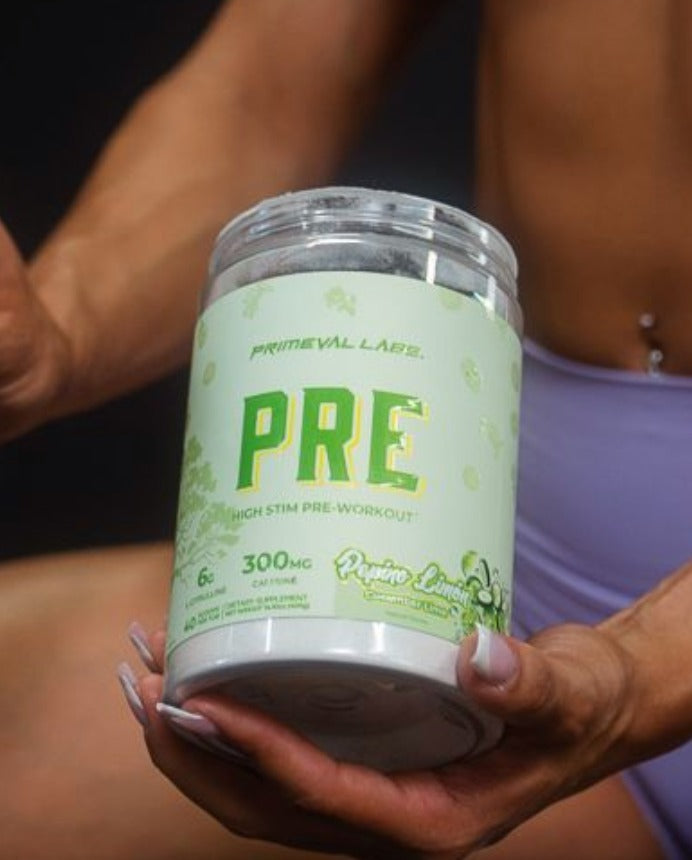In the world of bodybuilding supplements and sports nutrition, there are very few proven commodities. Ingredients found extremely successful when injected into animals (i.e. rats) are frequently nowhere near as effective (or effective at all) when consumed orally by humans.
There is one bodybuilding supplement that has stood the test of time. One whose benefits extend beyond the world of bodybuilding, supporting everything from cognition to cardiovascular health and more!
You probably know exactly what staple bodybuilding supplement we’re talking about. It’s even been referred to as the “king” of bodybuilding supplements from time to time.
The supplement we’re talking about of course is none other than creatine monohydrate.
No doubt you’ve heard of creatine before, and more likely than not, tried it yourself on occasion. You know it’s effective for building lean mass and improving strength, but have you ever wondered how or why creatine improves performance and aesthetics?
We’ve got all the info ahead on creatine monohydrate-- the king of bodybuilding supplements!
What is Creatine?
Creatine is a naturally occuring substance in the body made from the amino acids glycine and arginine.[1,2] It can also be obtained through the diet, prevalent in foods such as red meat.
Chemically known as α-methyl guanidine-acetic acid, creatine is predominantly stored (about 95%) in your skeletal muscles (as phosphocreatine), which explains why it’s one of the top bodybuilding supplements for improving lean mass and exercise performance.[1]
The remaining 5% of creatine is stored in the brain, kidneys, and liver.[1]
Factors that affect your ability to store creatine include exercise, amount of lean muscle mass, meat consumption, and levels of muscle-building hormones including testosterone and insulin-like growth factor-1 (IGF-1).[1]
How Does Creatine Monohydrate Work?
When creatine enters the body, whether through food or in the form of a bodybuilding supplement), it initially binds to a phosphate molecule to form creatine phosphate.
Why is this important?
Well, as you might remember, ATP (adenosine triphosphate) is your body's primary energy source. When your body oxidizes (“burns”) carbs, protein, or fat, the whole purpose of burning these nutrients is to get ATP, so it can power all of they other processes of the body, including the very production of ATP.
ATP provides energy by hydrolyzing one of its phosphate groups, which means ATP now becomes ADP (adenosine diphosphate), since it lost one of its phosphate groups.[1] The “problem” with ADP is that it doesn’t do much of anything regarding energy production for the body until it gets back a phosphate group and becomes ATP once again.
Here’s where creatine comes into play.
Creatine donates its phosphate group, remember its stored in the body as phospho-creatine, which enables ADP to transform into the much more useful, muscle-powering ATP you need so badly during training.
Thus, creatine improves your body’s ability to regenerate its ATP stores more quickly, leading to a number of benefits including increased work capacity and stamina.
Let’s take a deeper look at this top bodybuilding supplement to see what else creatine can offer!
Benefits of Creatine
Improves Energy Production
This one may be a bit obvious, especially since we just discussed it above, but the chief benefit of creatine supplementation is that it improves your body’s natural energy production processes. ATP is the cellular “currency” that drives everything, the more of it you have, and the faster you can replenish it, the more smoothly everything runs, including everything from essential body functions to high-intensity exercise performance.[1,2]
Boosts Size, Strength & Performance
Creatine is well-documented to help increase body mass and athletic performance during high-intensity exercise.[4,5] Studies using this staple bodybuilding supplement note that when used in conjunction with resistance training there is an increase in muscle cell nuclei concentration, which leads to enhanced growth of skeletal muscle.[6]
Additional research notes that when creatine is paired alongside a stout dose of weight lifting, it increases fat-free mass (i.e. muscle), physical performance, and muscle morphology.[7] Part of the reason creatine may help enhance lean mass gains, aside from improving energy production, is that it has been shown to reduce mysotatin production in men.[8] FYI, myostatin is basically the “gains killer” protein in the body that inhibits muscle cell growth and differentiation.
Strength gains, too!
As great as it is to get bigger muscles, it would also help if your muscles were stronger, too. It just so happens that creatine supplementation can increase strength, and one study noted that incorporating this essential bodybuilding supplement into your diet led to an increase in one-rep max on bench press of 43%!bench press one-rep max by up to 43%, compared to training alone.[9,10]
Aids Hydration
In addition to supporting ATP production in the body, creatine also serves as a natural osmolyte, compounds that increase the water content within muscle cells.[15]
Due to this, creatine causes a cell volumization effect that can influence muscle growth, improve performance, and give some nice “water-based” pumps during training.
Enhances Brain Function
Remember when we said earlier that some creatine is stored in your brain?
Well, as it turns out, creatine supplementation doesn’t just benefit muscle gains, but brain gains too!
Studies using adult vegetarians (individuals with low creatine levels due to low meat intake) noted that supplementing with creatine improved both working memory and intelligence.[12,13]
Creatine can also boost brain power the day after a rough night’s sleep, as research shows it improves mental performance following 36 hours of sleep deprivation.[14]
You probably didn’t think this top-notch bodybuilding supplement also was a powerful nootropic, but there’s more to the brain-boosting benefits of creatine…
Supports Cognitive Function
Research into the benefits of creatine supplements for the elderly has increased over time, as more and more evidence shows it can be beneficial for improving quality of life and reduce symptoms of cognitive dysfunction.[16]
Creatine supplementation has been shown to prevent up to 90% of the drop in dopamine levels in animals.[17]
FYI, declining dopamine production is a hallmark sign of Parkinson’s disease. Additionally, stacking creatine and CoQ10 (coenzyme Q10) was found to slow the drop in cognitive function in patients with Parkinson’s disease.[18]
Another study in Parkinson’s patients noted that creatine enhanced strength, indicating its strength-boosting properties also benefit the elderly in addition to young athletes who typically use it.[19]
Neuroprotective too!
Supplemental creatine can serve as a substrate for creatine kinase, which may increase phosphocreatine (PCr) and protect against ATP depletion, which has been shown to exert neuroprotective effects.[17]
Additional Brain Support
Daily supplementation of creatine has been shown to reduce symptoms of depression in women, including ones who did not respond to standard treatment with SSRI prescriptions.[20]
Other research has found creatine was beneficial in the treatment of Huntington’s disease, Amyotrophic lateral sclerosis, and a host of others including Alzheimer’s’, Ischemic stroke, epilepsy, and brain or spinal cord injuries.[21,22,23]
Fights Fatigue
Creatine also helps boost endurance and stamina during training by combating neuromuscular fatigue and perceived fatigue when training in the elements.[24,25] It can also heighten mood following sleep deprivation or tasks that take a toll on your psychologically.[26]
Promotes Healthy Blood Sugar Levels
Believe it or not creatine may actually be useful for diabetics as well.
Studies note that the bodybuilding supplement may help significantly decrease blood glucose measurements during an oral glucose tolerance test in otherwise healthy men performing aerobic exercise (i.e. cardio).[27]
A systematic review also concluded that creatine supplementation is helpful for decreasing blood sugar especially when paired with exercise.[28]
Heart Helper
Animal studies note that creatine may help protect the heart against stress and enhances repair.[29]
Production of creatine also helps decrease homocysteine levels. Elevated concentrations of homocysteine are known to increase risk of heart disease. Additionally, creatine has also been shown to help lower cholesterol when consumed in amounts of 20g per day.[30]
Supports Bone Health
Creatine supports bone growth factors that enhance osteoblast formation, thereby increasing bone formation and bone repair.[31] Plus, daily creatine supplementation has also been shown to help decrease osteoarthritis pain in older women.[32].
Accelerates Recovery from Injury
Not only does creatine improve athletic performance, it may also speed recovery from injuries sustained during the course of intense training. Research conducted in healthy subjects indicates that it may significantly improve recovery of knee extensor muscle function following injury.[33]
Good for Expecting Moms too!
The king of bodybuilding supplements also benefits those aspiring bodybuilders in the womb, as research shows that pregnant women taking creatine can benefit the developing fetus in instances of premature birth, or when childbirth is complicated by oxygen deprivation.[34]
Types of Creatine
Creatine Monohydrate
Creatine monohydrate is the form of creatine most of you are well-acquainted with, most likely under the brand name of CreaPure. To create creatine monohydrate, a molecule of creatine is “hydrated” by adding a single (mono) molecule of water. This is the form that is the most studied and commonly used. It’s been around a long time and it flat out works!
Creatine monohydrate is 88% creatine by weight.
Creatine Hydrochloride
The second most popular form of creatine you’ll find is creatine hydrochloride (Creatine HCl). Here, rather than bonding creatine to water, it’s bonded to hydrochloric acid.
The hype with creatine HCl is that because it’s more water soluble than monohydrate it’s more effective, thus requiring a lower dose. These claims have not been substantiated by any significant amount of scientific evidence.
Creatine HCl is roughly 78% creatine by weight
Creatine Ethyl Ester
Creatine ethyl ester (CEE) is another highly touted form of creatine, marketed as the “superior” form of the bodybuilding supplement due to its purported improved bioavailability. Nothing could be further from the truth, and research even shows that creatine ethyl ester increases muscle levels of creatine to a lesser degree than monohydrate.[35]
Creatine ethyl ester is 82.4% creatine by weight.
Magnesium Creatine Chelate (MagnaPower)
Creatine MagnaPower is yet another trendy form of the bodybuilding supplement that's "chelated" with magnesium. This is a fancy way of saying creatine is bonded to the mineral magnesium, which is supposed to enhance absorption, and therefore its effectiveness.
Yet, just like creatine ethyl ester and creatine hydrochloride, there is a severe lack of research showing its superiority over the tried and true forms of creatine.[36]
How Much Creatine Should I Take?
Various dosing and loading protocols have been prescribed for creatine over the decades, with some advocating mega dosing it up to 20g the first few days to reach saturation.
In the end, as long as you’re getting between 3-5 grams everyday, you’ll reach saturation and start experiencing the increases in size, strength, and performance from this time-tested bodybuilding supplement.
When to Take Creatine Monohydrate
As for an “optimal” time to take creatine, an argument could be made that the “ideal” time to take it is post workout, when muscle cell insulin sensitivity is highest and they are the most receptive to nutrients, but the increase would be minimal at best.
The more important thing is that you take it everyday, as it is a saturation-based ingredient, meaning it doesn’t not provide any acute benefit, as is the case with citrulline, caffeine, or any one of the other best pre workout supplements.
Creatine -- THE bodybuilding supplement
Creatine has been around for decades, and still to this day it reigns supreme as the most heavily studied, consistently proven successful bodybuilding supplement ever discovered.
Use it to boost lean mass gains, enhance strength, and even support cognitive function.
References
- Persky AM, Brazeau GA. Clinical Pharmacology of the Dietary Supplement Creatine Monohydrate. Pharmacol Rev. 2001;53(2):161 LP-176.
- Bird SP. Creatine Supplementation and Exercise Performance: A Brief Review. Journal of Sports Science & Medicine. 2003;2(4):123-132.
- The Editors of Encyclopedia Britannica. (2016, August 19). Adenosine triphosphate. Retrieved October 17, 2017, from
- Branch JD. Effect of creatine supplementation on body composition and performance: a meta-analysis. Int J Sport Nutr Exerc Metab. 2003;13(2):198-226.
- Parise G, Mihic S, MacLennan D, Yarasheski KE, Tarnopolsky MA. Effects of acute creatine monohydrate supplementation on leucine kinetics and mixed-muscle protein synthesis. J Appl Physiol. 2001;91(3):1041-1047. doi:10.1152/jappl.2001.91.3.1041.
- Olsen S, Aagaard P, Kadi F, et al. Creatine supplementation augments the increase in satellite cell and myonuclei number in human skeletal muscle induced by strength training. The Journal of Physiology. 2006;573(Pt 2):525-534. doi:10.1113/jphysiol.2006.107359.
- Volek JS, Duncan ND, Mazzetti SA, et al. Performance and muscle fiber adaptations to creatine supplementation and heavy resistance training. Med Sci Sports Exerc. 1999;31(8):1147-1156.
- Saremi A, Gharakhanloo R, Sharghi S, Gharaati MR, Larijani B, Omidfar K. Effects of oral creatine and resistance training on serum myostatin and GASP-1. Mol Cell Endocrinol. 2010;317(1-2):25-30. doi:10.1016/j.mce.2009.12.019.
- Earnest CP, Snell PG, Rodriguez R, Almada AL, Mitchell TL. The effect of creatine monohydrate ingestion on anaerobic power indices, muscular strength and body composition. Acta Physiol Scand. 1995;153(2):207-209. doi:10.1111/j.1748-1716.1995.tb09854.x.
- Rawson ES, Volek JS. Effects of creatine supplementation and resistance training on muscle strength and weightlifting performance. J strength Cond Res. 2003;17(4):822-831.
- Cook CJ, Crewther BT, Kilduff LP, Drawer S, Gaviglio CM. Skill execution and sleep deprivation: effects of acute caffeine or creatine supplementation - a randomized placebo-controlled trial. Journal of the International Society of Sports Nutrition. 2011;8:2. doi:10.1186/1550-2783-8-2.
- Rae C, Digney AL, McEwan SR, Bates TC. Oral creatine monohydrate supplementation improves brain performance: a double-blind, placebo-controlled, cross-over trial. Proceedings of the Royal Society B: Biological Sciences. 2003;270(1529):2147-2150. doi:10.1098/rspb.2003.2492.
- Benton D, Donohoe R. The influence of creatine supplementation on the cognitive functioning of vegetarians and omnivores. Br J Nutr. 2011;105(7):1100-1105. doi:10.1017/S0007114510004733.
- McMorris T, Harris RC, Howard AN, et al. Creatine supplementation, sleep deprivation, cortisol, melatonin and behavior. Physiol Behav. 2007;90(1):21-28. doi:10.1016/j.physbeh.2006.08.024.
- Burg MB, Ferraris JD. Intracellular Organic Osmolytes: Function and Regulation. The Journal of Biological Chemistry. 2008;283(12):7309-7313. doi:10.1074/jbc.R700042200.
- Rawson ES, Venezia AC. Use of creatine in the elderly and evidence for effects on cognitive function in young and old. Amino Acids. 2011;40(5):1349-1362. doi:10.1007/s00726-011-0855-9.
- Matthews RT, Ferrante RJ, Klivenyi P, et al. Creatine and cyclocreatine attenuate MPTP neurotoxicity. Exp Neurol. 1999;157(1):142-149. doi:10.1006/exnr.1999.7049.
- Li Z, Wang P, Yu Z, et al. The effect of creatine and coenzyme q10 combination therapy on mild cognitive impairment in Parkinson’s disease. Eur Neurol. 2015;73(3-4):205-211. doi:10.1159/000377676.
- Hass CJ, Collins MA, Juncos JL. Resistance training with creatine monohydrate improves upper-body strength in patients with Parkinson disease: a randomized trial. Neurorehabil Neural Repair. 2007;21(2):107-115. doi:10.1177/1545968306293449.
- Kondo DG, Sung Y-H, Hellem TL, et al. Open-label adjunctive creatine for female adolescents with SSRI-resistant major depressive disorder: A 31-phosphorus magnetic resonance spectroscopy study. Journal of affective disorders. 2011;135(0):354-361. doi:10.1016/j.jad.2011.07.010.
- Bürklen TS, Schlattner U, Homayouni R, et al. The Creatine Kinase/Creatine Connection to Alzheimer’s Disease: CK Inactivation, APP-CK Complexes, and Focal Creatine Deposits. Journal of Biomedicine and Biotechnology. 2006;2006:35936. doi:10.1155/JBB/2006/35936.
- Prass K, Royl G, Lindauer U, et al. Improved reperfusion and neuroprotection by creatine in a mouse model of stroke. J Cereb Blood Flow Metab. 2007;27(3):452-459. doi:10.1038/sj.jcbfm.9600351.
- Rambo LM, Ribeiro LR, Oliveira MS, et al. Additive anticonvulsant effects of creatine supplementation and physical exercise against pentylenetetrazol-induced seizures. Neurochem Int. 2009;55(5):333-340. doi:10.1016/j.neuint.2009.04.007.
- Smith AE, Walter AA, Herda TJ, et al. Effects of creatine loading on electromyographic fatigue threshold during cycle ergometry in college-aged women. Journal of the International Society of Sports Nutrition. 2007;4:20. doi:10.1186/1550-2783-4-20.
- Hadjicharalambous M, Kilduff LP, Pitsiladis YP. Brain serotonin and dopamine modulators, perceptual responses and endurance performance during exercise in the heat following creatine supplementation. Journal of the International Society of Sports Nutrition. 2008;5:14. doi:10.1186/1550-2783-5-14.
- McMorris T, Harris RC, Swain J, et al. Effect of creatine supplementation and sleep deprivation, with mild exercise, on cognitive and psychomotor performance, mood state, and plasma concentrations of catecholamines and cortisol. Psychopharmacology (Berl). 2006;185(1):93-103. doi:10.1007/s00213-005-0269-z.
- Gualano B, Novaes RB, Artioli GG, et al. Effects of creatine supplementation on glucose tolerance and insulin sensitivity in sedentary healthy males undergoing aerobic training. Amino Acids. 2008;34(2):245-250. doi:10.1007/s00726-007-0508-1.
- Pinto CL, Botelho PB, Pimentel GD, Campos-Ferraz PL, Mota JF. Creatine supplementation and glycemic control: a systematic review. Amino Acids. 2016;48(9):2103-2129. doi:10.1007/s00726-016-2277-1.
- Spindler M, Meyer K, Stromer H, et al. Creatine kinase-deficient hearts exhibit increased susceptibility to ischemia-reperfusion injury and impaired calcium homeostasis. Am J Physiol Heart Circ Physiol. 2004;287(3):H1039-45. doi:10.1152/ajpheart.01016.2003.
- Earnest CP, Almada AL, Mitchell TL. High-performance capillary electrophoresis-pure creatine monohydrate reduces blood lipids in men and women. Clin Sci (Lond). 1996;91(1):113-118.
- Gerber I, ap Gwynn I, Alini M, Wallimann T. Stimulatory effects of creatine on metabolic activity, differentiation and mineralization of primary osteoblast-like cells in monolayer and micromass cell cultures. Eur Cell Mater. 2005;10:8-22.
- Neves MJ, Gualano B, Roschel H, et al. Beneficial effect of creatine supplementation in knee osteoarthritis. Med Sci Sports Exerc. 2011;43(8):1538-1543. doi:10.1249/MSS.0b013e3182118592.
- Cooke MB, Rybalka E, Williams AD, Cribb PJ, Hayes A. Creatine supplementation enhances muscle force recovery after eccentrically-induced muscle damage in healthy individuals. Journal of the International Society of Sports Nutrition. 2009;6:13. doi:10.1186/1550-2783-6-13.
- Dickinson H, Ellery S, Ireland Z, LaRosa D, Snow R, Walker DW. Creatine supplementation during pregnancy: summary of experimental studies suggesting a treatment to improve fetal and neonatal morbidity and reduce mortality in high-risk human pregnancy. BMC Pregnancy and Childbirth. 2014;14:150. doi:10.1186/1471-2393-14-150.
- Spillane M, et al. The effects of creatine ethyl ester supplementation combined with heavy resistance training on body composition, muscle performance, and serum and muscle creatine levels. J Int Soc Sports Nutr. (2009)
- Selsby JT, DiSilvestro RA, Devor ST. Mg2+-creatine chelate and a low-dose creatine supplementation regimen improve exercise performance. J strength Cond Res. 2004;18(2):311-315. doi:10.1519/R-13072.1.
- Jäger, Ralf; Analysis of the Efficacy, Safety, and Regulatory Status of Novel Forms of Creatine. Amino Acids 40.5 (2011): 1369-383.















Leave a comment
This site is protected by hCaptcha and the hCaptcha Privacy Policy and Terms of Service apply.